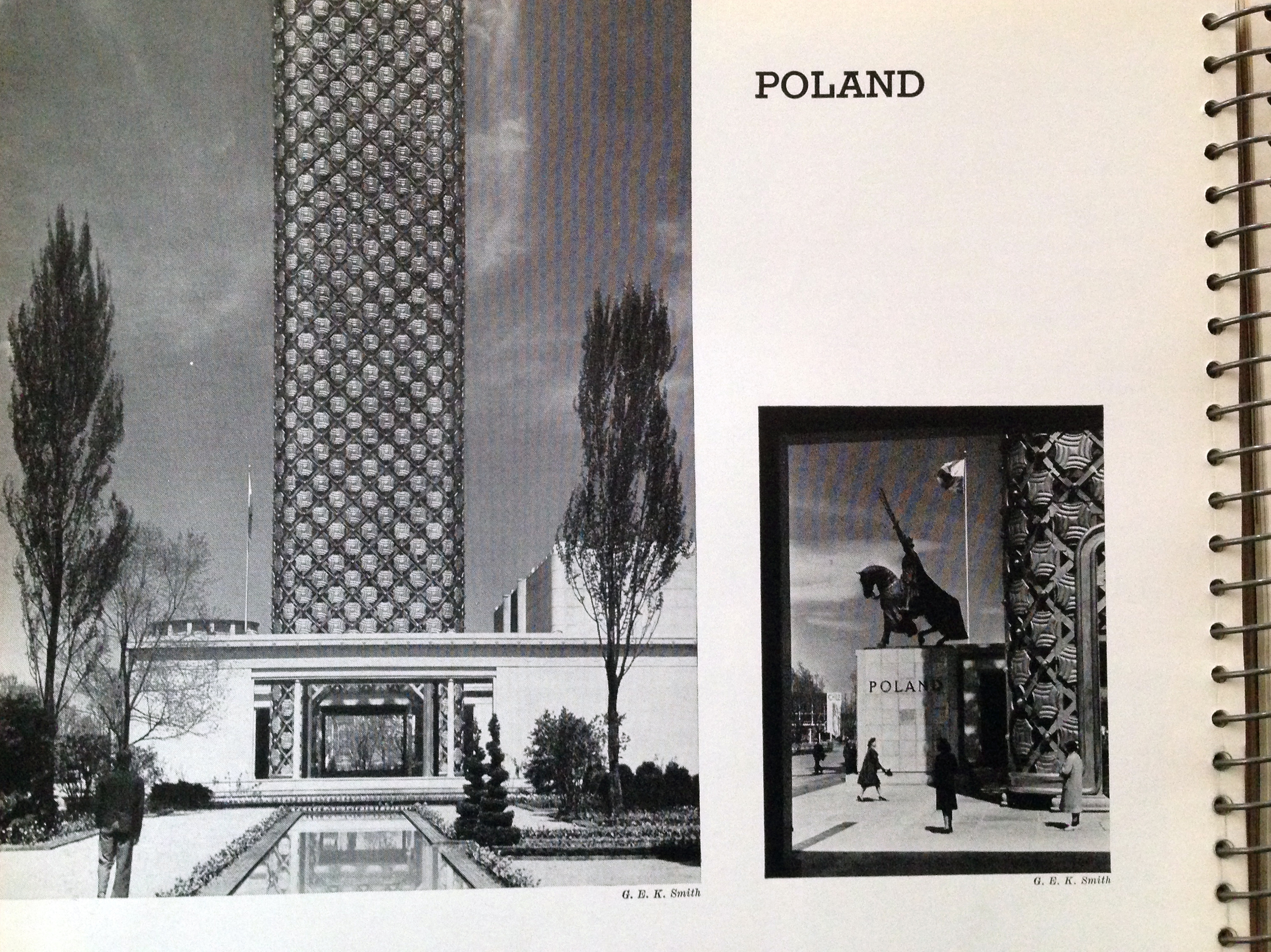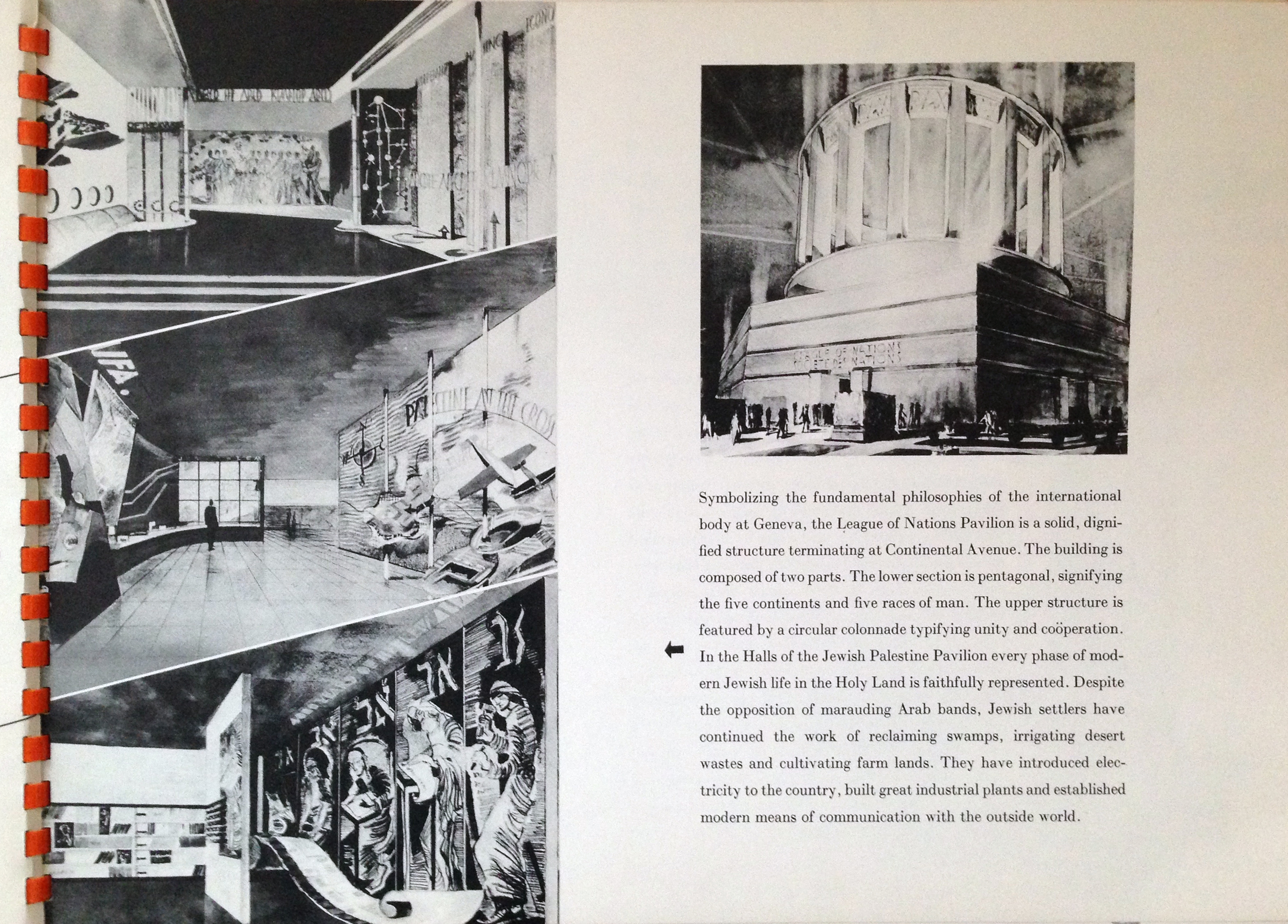3. Brave Face
Fair Records show that preparations to solicit international and industry participation for the 1939 event began as early as 1936.
While the Fair hosted daily events featuring the international participants via exhibition, pageant, and programming within the national pavilions and on the surrounding grounds, it seems every aspect of the Fair was shadowed by the Nazi invasions encroaching on the homelands of the visiting nations. While neutrality was broadcast (or feigned) by most, the roots of American nationalism and isolationism permeate the archive’s documents, correspondence, and news accounts of 1939. The world outside the World’s Fair was in turmoil: a detailed account of the times is in George Orwell’s Diaries,(1) a list of handwritten extracts of the daily events leading up to the war in early September, 1939: Invasion of Poland began this morning. Warsaw bombed. General mobilization proclaimed in England, ditto in France plus martial law. [Radio] (3.9.1939)

Section opener from the 1939 World’s Fair Official Guidebook. (below) Women pose with inscription during Luxembourg Participation Day, ‘...forward to a perpetual lease of freedom under God in peace and justice, and here bows to God’s own country the Home of The Brave, The United States’. The two lines below read, ‘We suffer but we exist. We want to remain what we are.’



Today at the Fair welcomes the Royals, Saturday, June 10, 1939; the British Navy blockades the advances of Nazi Germany, September 4, 1939. Today, our strongest ally is challenged (2) from within by populist and isolationist forces as a result of their Brexit decision to split from the European Union.




The Polish and Czech representatives maintained their exhibits and pavilions while events unfolded in their home nations, at that moment under invasion by Nazi Germany. These governments are among those poised to make consequential political and ideological decisions (3) about their directions forward.


The League of Nations,(4) an organization formed by the victorious allied powers at the end of World War I to prevent war and ensure international cooperation, was quickly dissolving with the withdrawl of axis powers as WWII became inevitable. (After WWII, nations drew together to form NATO (5) (North Atlantic Treaty Organization), likewise challenged today with isolationist America-First sentiments in a world of seeming forever-wars.)
The Jewish-Palestine Building souvenir postcard, with text that characterizes Jewish settlement of the Holy Land in ‘opposition of marauding Arab bands,’ reclaiming and trans-forming ‘swamps and desert wastes’ into farm land. (In 1939, Israel had not yet been created, fated to remain a charged and contested claim on Palestinian lands.)

Nevertheless, the programming for the Fair aimed to continue to act as a ‘neutral state’ and share cultures from across the world until the Fair’s final closing in 1940. Then, as now, the distractions of entertainment and spectacle carried on to distract an anxious nation from the troubling events unfolding abroad.



Notes/links: (1) Orwell Diaries 1938–1942, The Orwell Prize; (2) Brexit and the U.S. Shutdown: Two Governments in Paralysis, Ellen Barry and Mark Landler, NYT; (3) In Czech Election, a Choice Between Leaning East or West, Mark Santora and Hana de Goeij, NYT; (4) The League of Nations: Political History, Brittanica; (5) A Short History of NATO, NATO/North Atlantic Treaty Organization